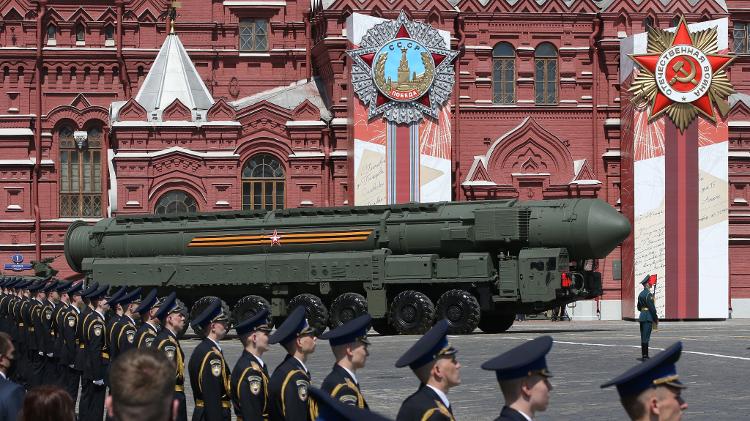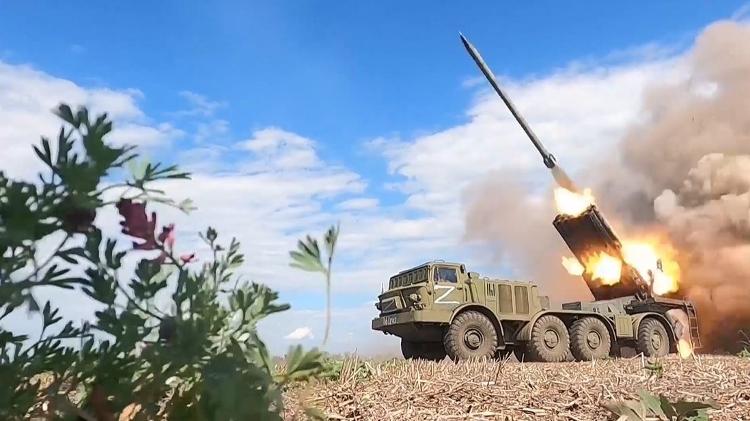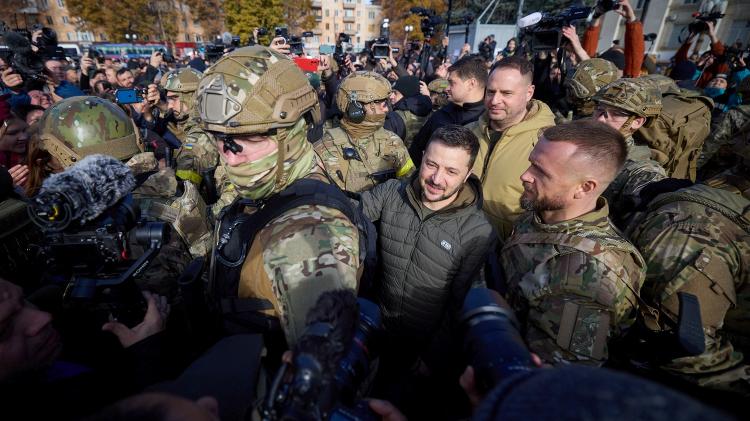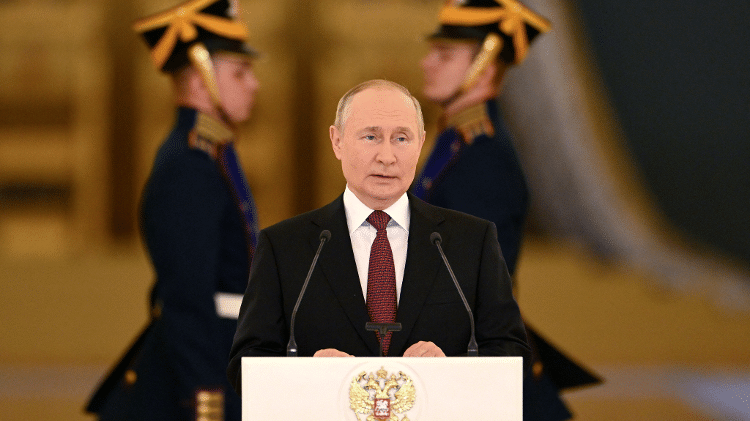Russian President Vladimir Putin counted on a quick victory after the invasion of Ukraine, but this turned out to be an illusion. The call of reserve forces and the recent retake by Ukraine of areas such as the city of Kherson show Russia’s difficulties. “The beginning of the end of the war” for Ukrainian President Volodymyr Zelensky.
After all, the strength of the Russian army was overestimated? How strong are Russian troops actually?
Russia demanded military status. After the collapse of the Soviet Union, Russia did everything it could to maintain its superpower status – also as a permanent member of the UN Security Council. When it became clear that the country’s economy could not guarantee this important position in the world, the way out was to embrace this position militarily.
Russia’s army has for decades been considered one of the largest and most powerful in the world – even equipped with nuclear weapons.
And lest the world forget this, Putin regularly provided footage of choreographed military parades in Moscow or held military exercises with friendly countries like Belarus.
However, the true strength of an army is not measured in choreographed steps on Red Square, but in the trenches on the battlefield. And Russian troops are cornered in Ukraine by a much smaller army that didn’t exist a few years ago. How can this be?
The real size of Putin’s army
On paper, the Russian Armed Forces has 1 million soldiers and should soon have 1.1 million, says defense expert Margarete Klein from the German Institute for International Relations and Security. However, the actual size is much smaller.
And the bulk of these units are already used in Ukraine. “They suffered huge losses for the soldiers,” says Klein. There are no exact figures, but US intelligence services estimate that Russia already has tens of thousands dead or injured.
American expert George Barros says that a significant part of these losses – in times of peace – were recorded in regiments stationed in the Asian part of Russia.
In his opinion, the idea that Russia has a large number of reserves ready to act does not correspond to reality. For him, the course of the war so far proves that the world has long overestimated the strength of the Russian army.
Reservists, called in since September, will fill the gaps left by the losses. Experts say that by calling these reserve forces, Putin is trying to maintain the current line of the front after many retreats.
No training or combat equipment
The profile of those summoned gives a good idea of the current state of Russian military power. “There are men over 50 who have health problems,” says Barros. Various posts on social media confirm this observation.
Reservists need to be trained and equipped before going to war. But at present, many will only receive a month or two of training, which is far from sufficient.
There are also those sent to war without any training or equipment, Barros says. He considers it difficult to achieve military victories with such reserves – the practical effect should be an increase in the number of dead and wounded.
Pavel Luzin, a Russian security expert living in the USA, agrees and thinks that Ukraine will continue the fight.
The country has successes. Kherson, in southern Ukraine, for example, had been under Russian rule since the beginning of the conflict and was illegally annexed by Moscow in October, but was re-conquered by the Kyiv army last week. The reconquest of this important city on the banks of the Dnieper River is one of Ukraine’s greatest victories in the war against Moscow.
Luzin adds that Russia’s arms industry is not in a position to provide a substantial amount of equipment in the short term, especially for the recruits on call.
Klein remembers the use of old weapons, which have been stored since Soviet times. He points out that it’s not even certain whether much of this material still works, or whether it was sold through corruption a long time ago. He says the Russian defense industry lacks chips for high-precision weapons.
Ted Galen Carpenter, an expert at the Cato Institute in Washington, states that Russia’s real big military advantage over Ukraine is that it has a much larger population so it can send more and more reservists into the war in the long run.
Just sending more soldiers won’t work.
Barros says there are several components that determine success in a war. Soldiers, modern weapons, good training, leadership, motivation and logistics are just a few of them.
“Sending more people to the front will not solve the problem the Russians are facing,” Barros said. He added that Ukrainian forces continue to advance. He claims that the Ukrainian counteroffensive is not over and that the Russians can be satisfied if they can maintain their current position.
The Russian Armed Forces has always clearly surpassed Ukraine’s, both in terms of the quality of weapons and the number of soldiers. But Barros analyzes that Moscow’s military leadership has so far not known how to use this tactical advantage to achieve its strategic goals in Ukraine.
Even the use of well-trained and equipped mercenaries (mercenaries), such as those of the Wagner paramilitary group, was not enough. This group had between 8,000 and 9,000 warriors at its disposal before the war started. The expert believes that the employment of these men will not have a significant impact on the course of the war.
Nuclear weapons to scare the West
It is not surprising that Russia resorted to nuclear weapons to intimidate Western countries. “This threat is not new,” Klein recalls. The aim is to undermine Western support for Ukraine. But militarily, nuclear weapons are of little use. Klein considers their use to be essentially politically biased.
As a result, Putin considers the use of nuclear weapons unlikely, as he would even lose the support of China or India. But if Putin has to choose between using nuclear weapons and being held accountable for his crimes in an international court, Carpenter says he’ll choose the nuclear option.
“They need a break because the Russian forces are exhausted,” says Barros. He predicts that the Ukrainian Army will launch more counterattacks this European winter.
Carpenter says that Russia internally wants to end the war as soon as possible and that Ukraine and the West must be willing to negotiate. Klein, Barros and Luzin predict that the war will only end if Putin is completely defeated or the West withdraws its support for Ukraine. ????????with agencies Deutsche Welle and Loop????????
source: Noticias



